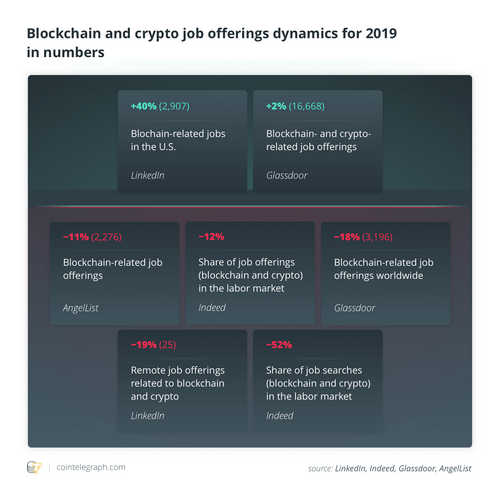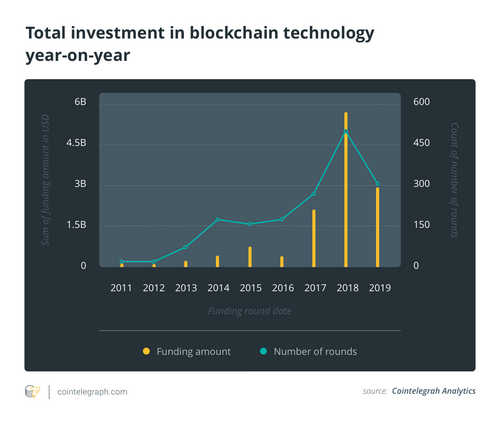According to a report from the Korea Herald on Monday, the project is aimed to lower trading costs, which tend to be high for over-the-counter (OTC) stocks at the moment with a series of manual processes, and to improve security and address information imbalances between buyers and sellers.

Dunamu, the operator of the Upbit crypto exchange, is releasing a new app this month in South Korea for trading unlisted securities with a plan to utilize blockchain in the first half of next year.
The report added it will be possible to trade up to 4,000 securities on the platform with Samsung Securities managing the trading process.
When introduced next year, the blockchain component will allow for the verification of identities and the processing of the transactions. In particular, it will automate the updating of certain shareholder lists in a distributed fashion that currently have to be maintained by hand.
“Most unlisted stock transactions in South Korea are made via online community bulletin boards and offline trades, leading to uncertainties surrounding the parties’ identities and the information needed in the investment”, Dunamu’s chief strategy officer Lim Ji-hoon was quoted as saying.
Blockchain for the trading of unlisted securities is already receiving attention in Korea. In early August, a group including Koscom – the IT arm of the Korea Exchange – and the KEB Hana Bank said they would be developing an OTC platform and promised to have it up and running by the end of the year.
Crypto Firms Brace as World Bank Predicts 20% Crash in Global Remittances
The World Bank has predicted that the global remittance industry will retract by 20% amid the global economic slow-down resulting from the coronavirus pandemic.
With a plethora of crypto firms targeting the remittance sector, the news may comprise a poor omen for many blockchain firms seeking to gain a foothold in the cross-border payments industry.
World Bank predicts record slump in remittances
On April 22, the World Bank published a report predicting that 2020 will see the “sharpest decline of remittances in recent history.”
Slashed wages and falling employment of migrant workers is expected to drive a 19.7% drop in remittances destined for low and middle-income countries, or LMICs. In total, this represents a $445 billion loss to millions of households in emerging economies.
“Remittances are a vital source of income for developing countries”, stated World Bank Group president David Malpass, adding: “Remittances help families afford food, healthcare, and basic needs.”
“The ongoing economic recession caused by COVID-19 is taking a severe toll on the ability to send money home and makes it all the more vital that we shorten the time to recovery for advanced economies.”
The report notes that remittance flows to LMICs became larger than foreign direct investment, or FDI, with the World Bank asserting that remittances have become “an important milestone for monitoring resource flows to developing countries.”
Remittances to LMICs reached a record of $554 billion in 2019.
Prediction offers poor outlook for crypto remittance firms
With the average global cost of sending $200 sitting at 6.8% globally and up to 9% in Africa, the crypto industry has long sought to establish a significant footprint in the industry.
The World Bank’s prediction offers a poor outlook for many blockchain firms specializing in cross-border payments, with even crypto’s largest firm’s struggling to make a meaningful impact on the remittance sector.
While Ripple has inked numerous partnerships with remittance firms in various regions, the scale of blockchain’s use within the sector remains to be seen – with a recent Intermex earnings call revealing that RippleNet will not be used to service the firm’s major markets, and will be trialed in new markets instead.
Crypto Exchange OKEx to List Hedera Hashgraph’s Token HBAR
Cryptocurrency exchange OKEx announced that it will soon list enterprise-focused decentralized network Hedera Hashgraph’s native token HBAR.
As OKEx’s spokesperson told Cointelegraph, the platform will add HBAR to its spot market with HBAR/BTC, HBAR/USDT and HBAR/USDK on Sept. 17. Deposits and withdrawals will open on Sept. 16 and Sept. 24 respectively. Head of Asia Pacific at Hedera Hashgraph Edgar Seah added:
“Hbars play a crucial role in the function, growth, and security of the Hedera network, and it is important that they are available to those who wish to use or create applications on the network. OKEx’s focus on listing projects with practical uses cases is in line with our belief that making coins easily accessible to developers is important for the development of decentralized ledger platforms such as Hedera.»
Expanding support
As Cointelegraph reported recently, OKEx announced that the exchange will support Ethereum Classic’s (ETC) upcoming Atlantis hard fork that is planned to occur between Sept. 12 and Sept. 13 at block height 8,772,000.
On Aug. 30, it was reported that Boeing will join IBM on Hedera Hashgraph’s governing council, although the aircraft giant has not officially confirmed the news.


